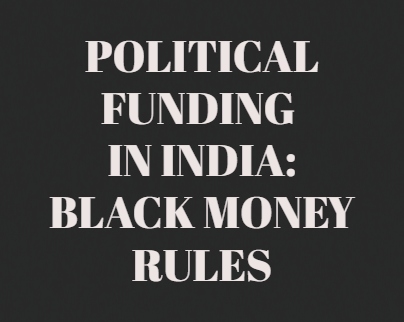

By Linus Garg
First publised on 2021-11-13 03:21:36
What happens when a political party is not funded by wealthy backers and corporates through cheques or Electoral Bonds? Itcollects any amount of cash from whoever is a willing contributor, or from kickbacks in deals, and plough it back in the party using a loophole which allows cash contributions below Rs 20000 from anyone, no questions asked . For instance, if a party gets Rs 10cr in cash from a 'well-wisher', it just needs to show in the books that Rs 20000 each was received from 5000 persons to make it 'official'. Not even the names of the donors need to be given. It is then put down as contributions from "unknown sources". It is obvious that a major part of these funds is black money.
The Association for Democratic Reforms (ADR), an NGO that is doing exemplary work in the electoral and political reforms space and keeps tabs on how political parties are funded, has reported that in 2019-20, out of the Rs 803cr total income of regional parties, Rs 446cr, or 55.54% was from such unknown sources. Topping the list was TRS in Telangana with Rs 89cr and Telugu Desam Party at 81.6cr and YRS Congress at 74.7cr in neighbouring Andhra Pradesh were not far behind. The Biju Janata Dal in Odisha showed Rs 50.5cr and DMK in Tamil Nadu Rs 45.5cr from such sources. ADR reported that some other regional parties have not uploaded their data while it did not analysed the data of three parties as there were discrepancies in uploaded data.
When one considers the fact that due to the cap on election expenses, all political parties spend way more than what is officially allowed in elections, it becomes clear that the amounts shown as received from unknown sources is just the tip of the iceberg. All parties, and not only regional parties, acquire huge funds in cash and they spend it in cash during elections. No accounts are kept for both income and expenditure in this regard. This is one loophole in the law which is being exploited to the hilt by all parties. But there is little that can be done about it as most parties collect cash this way at rallies or during door-to-door collection drives. But a major part of these funds are collected from dubious sources. This has come to be accepted as normal in Indian politics.











